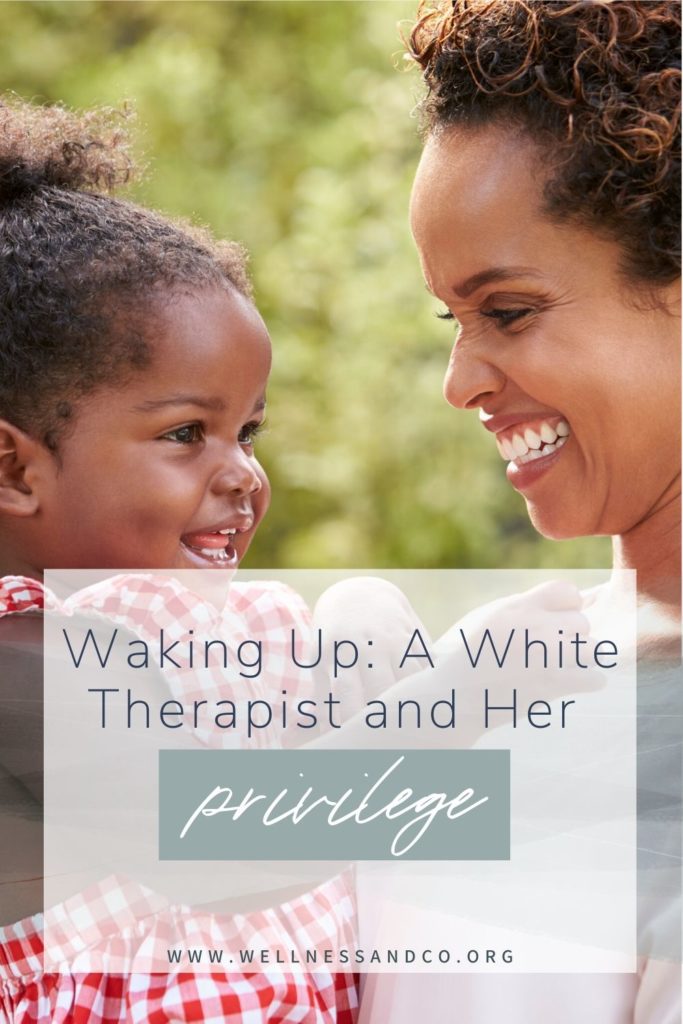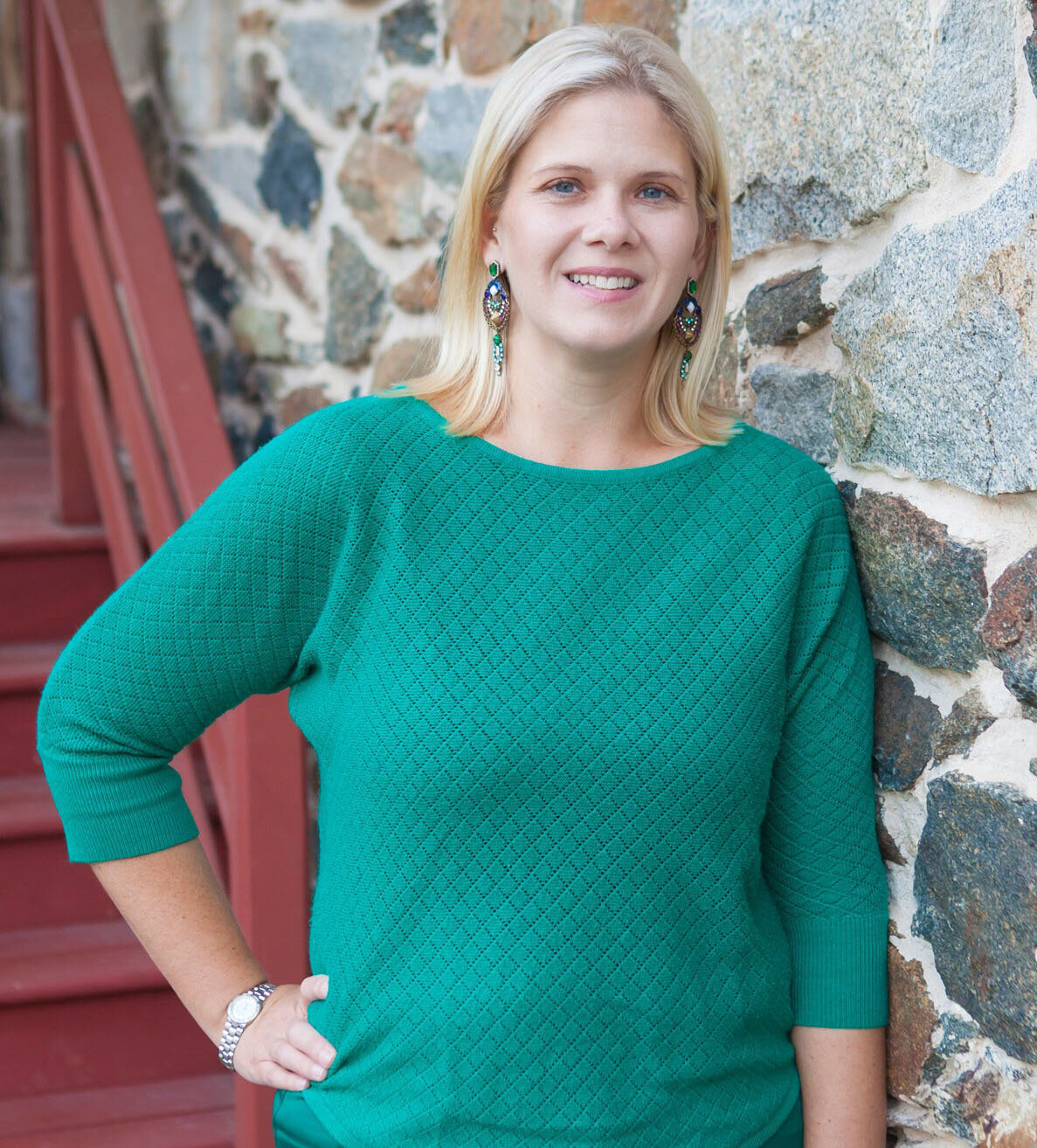Follow
Wellness & Co.
Hi, I'm Dr. K, Wellness & Co. is a growing therapy/coaching practice and educational hub for prospective clients based in Maryland and virtual clients all over the world!
Hi, I'm Dr. K
free guide
e -books
e -course
Waking Up: A White Therapist and Her Privilege
June 11, 2020
by Erin Newton, LCPC
Last month, Wellness & Co. devoted our time and energy to moms. We addressed postpartum depression (PPD), postpartum psychosis (PPP), postpartum anxiety (PPA), birth trauma, postpartum rage, and general feelings of loneliness in parenting and the ability (and sometimes inability) to give ourselves grace. One thing I did not address; however, was the specific ways that being a black mother changes that narrative. Unfortunately, I left black women out of the conversation, as they frequently are. I have no excuses for that, only that my white privilege was showing and that when I think about moms and the issues they face, I tend to not go beyond my own white experiences.
And I know I could give you data here and recite statistics about risk factors and cultural competency and all those things that some of you have been taught and a lot of my therapist friends likely already know. I took cultural competency in grad school and undergrad. I went to a black church once as part of a class. We think that knowing and understanding these things intellectually means it’s ok to educate others. I’m not so sure that it does.

Black Women Are the Experts on THEIR Experiences
As a therapist, I have education and training that frequently puts me in the role of “expert” when it comes to human behavior, relationships, and mental health. I often counsel people on and write about things I don’t have firsthand experience in. I don’t personally know what it’s like to be deeply, clinically depressed but I know how others have told me it feels and I know what it looks like and how to treat it. But race is more complex. As a white person, there are times when I need to know my role and know when the story is not mine to share. This is one of those times. I need to shut up and listen and follow those whose story it is. I can be the platform but I cannot be the voice. I will not be the voice.
Am I Actively Anti-Racist?
I am struggling with all of this, friends! And maybe you are, too. I do not consider myself to be racist, but I know there are parts of me that are racist. I have black friends, and I say that also knowing full well that this statement does not absolve me of my racism or my personal responsibility to understand the systemic racism in our country and how I have benefitted from it. I work on this every day. The last two weeks have been especially draining. I have compassion and empathy and I do not have hate in my heart, but what am I doing to be actively anti-racist? What is our practice doing? What are you doing?
Maybe you don’t know what to do. Maybe you have a lot of questions that you don’t know where to find the answers to. All of that is ok.
It’s ok to say you don’t know right now.
It’s ok to say you are learning and new at this and that you are feeling emotionally resistant to things and you need some time to sit with those feelings. Changing world views and challenging who you think you are is not easy work! As a therapist, I am open to the idea that everyone is always changing and I welcome those questions and that curiosity. We can be a non-judgmental, safe space for our clients to search through all of those feelings and questions. It is ok if that takes time and it is ok if that’s uncomfortable. When we are uncomfortable, this is when we grow.
Use Your Power with Purpose
In January of 2017, my husband and I took our two oldest daughters, ages 8 and 6 at the time, to the Women’s March in DC. While we were there, looking out over a sea of thousands of people, my husband explained to our girls that they have privilege that they haven’t earned, just from being born into a white upper middle class home with two educated parents. He explained that this meant things will be easier for them just because, not because of anything they did and that others who do not have that privilege are starting at a lower point than they are. We encouraged them to use that privilege for good, to speak up for those who do not have the privilege that will make them heard. Use your privilege, ladies, we told them. This is the only way we see change.
Let’s Listen, OK?
And so, I’m going to do that here. In the coming weeks, I will be interviewing black women about their experiences as mothers in this country. The stereotypes they faced, the fears and joys they share, the stories that are theirs and theirs alone to tell. I will be letting these ladies be the experts. I will be quiet and listen. I encourage you to listen with me.
Black lives matter. From here on out, I pledge to be proactive in my ally-ship and advocacy, and use my privilege and voice to help those in need.
Learning and growing and changing,
-Erin
Erin Newton has been working with individuals and families for almost nine years now. She specializes in perinatal mental health, birth trauma, and anxiety related issues. She strives to help her clients feel seen, heard, understood and to give them the tools they need to start their own journey of healing.
Leave a Reply Cancel reply
CONTACT
Start Here
BLOG
OUR TEAM
SHOP
ABOUT
©2025 Wellness & Co. | All Rights Reserved | Design by EverMint Design Studio
BACK TO TOP
connect with us on instagram
